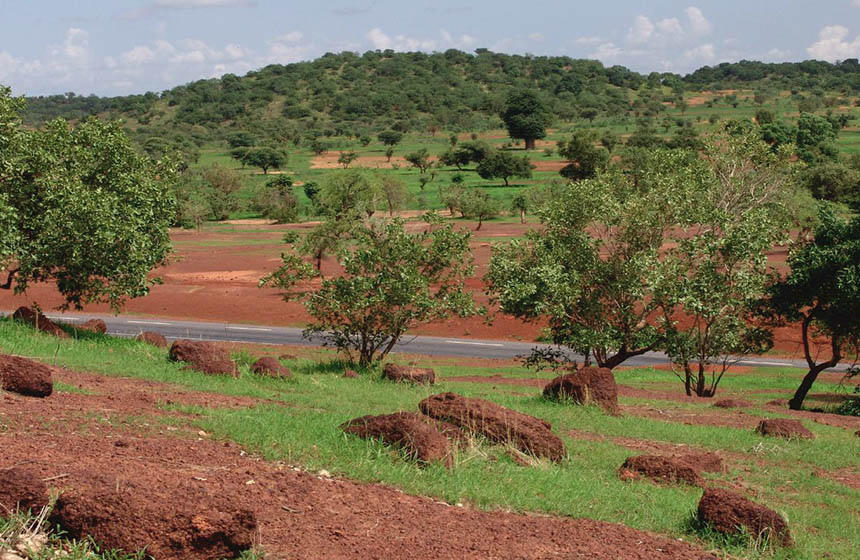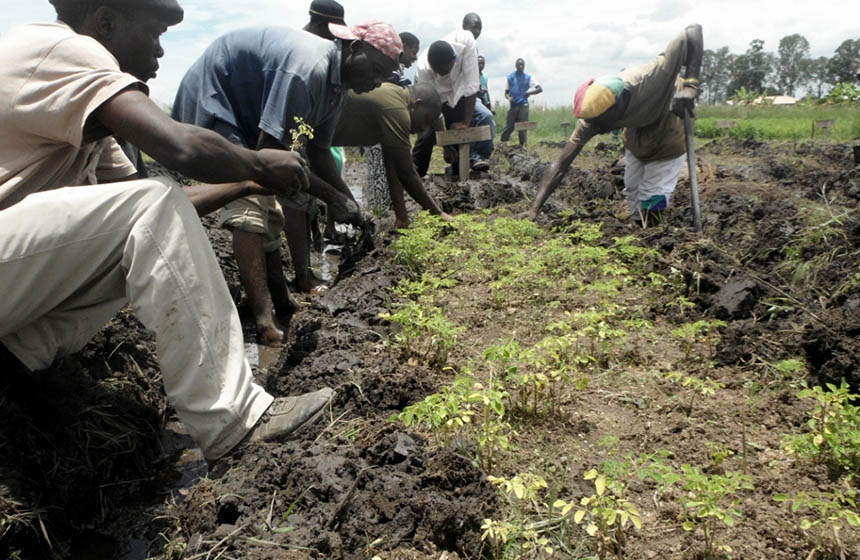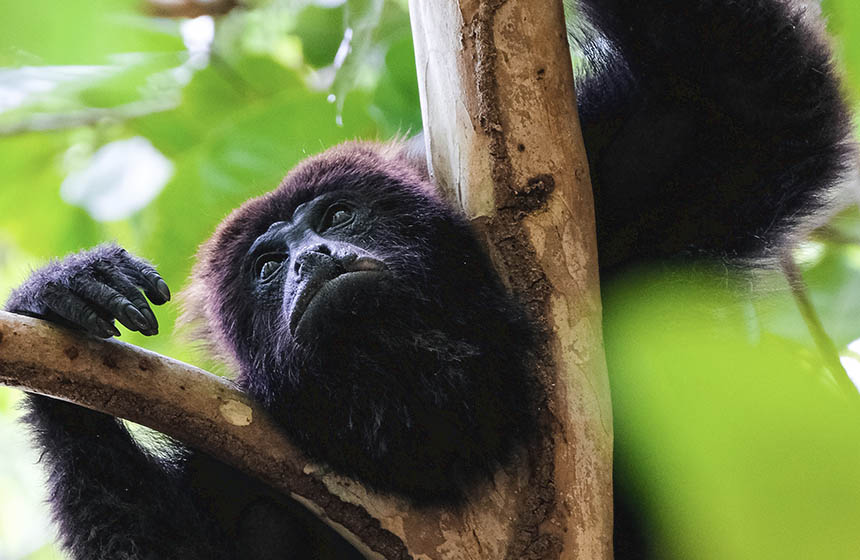Community-based dryland restoration
Farmer-managed natural regeneration (FMNR) and improved forest management have provided adaptation benefits to an area particularly vulnerable to rising temperatures and other climate-related risks.
Nature-based Intervention:
Tree Aid, an international NGO, supported local communities in carrying out tree planting and restorative care and trained community members in agroforestry and farmer-managed natural regeneration (FMNR), a method that promotes the regrowth of previously cut or burnt down trees. Trees are pruned to stimulate growth as well as provide leaf litter to nourish soils. The restored and better managed forests are now yielding fruits, nuts, oils, butters, traditional medicines, and nutritious foods to both improve food security of local communities as well as diversify incomes.
Overview of context and outcomes:
The population surrounding the Duwa and Sutebwo forests of the Segou region is dependent on rainfed agriculture in an area south of the Sahara desert that faces increasingly frequent and severe climate change hazards including rising temperatures, droughts, and floods. These impacts lead to crop losses and high food prices. Forest degradation, agricultural expansion, prolonged drought, and biodiversity loss from poaching have already weakened the ecosystem of the surrounding landscape. Between 2000 and 2015, the two forests had lost a total of 3,300 hectares of forest replaced by open savannah woodland. Most of this savannah woodland has been further degraded compromising the quality of agricultural land.
Case effectiveness on
Climate change
Although not quantified for this project, augmenting tree cover in wooded savannah is known to increase above-ground carbon storage. Therefore, the increased tree density, from 168 to 182 trees per hectare between 2017 and 2020, is likely to provide carbon mitigation benefits in the project area.
75% of intervention beneficiaries reported having fairer and more equal access to forest resources. This improved equity of access is likely to benefit community members heavily reliant on forest products.
Ecosystem health
Ecological effect: Positive20,404 hectares of land are now reported to be under improved management with more than 345,000 new trees planted and 327,000 trees restored. Monitoring revealed that 8,300 hectares of degraded forest land have seen improved water retention and soil fertility. It is likely that composting efforts and indigenous tree planting will improve soil fertility further. Diversity of tree species has increased with 43 species present in 2020 as compared to 37 in 2017. The presence of the Cordyla pinnata threatened species has also been found to have increased.
Socioeconomic outcomes
44 Village Tree Enterprises (VTEs) were established to allow local people to collaborate in the production and sale of non-timber forest products. These VTEs have also launched savings and loan schemes to support members financially. According to a post-project assessment, 52% of the project population was under the poverty line, a 34% reduction since the start of the project.
Governance
The project used a decentralized forest governance model and created two inter-communal cooperatives of Farakunna and Hirosin. While this decentralized decision making, a forest
dialogue group and a steering committee were established to address conflicts and foster discussion.
Finance
The program was financed by the NGO Tree Aid.
Monitoring and evaluation
Two hundred and eighty one cooperative members were trained on how to collect data in order to monitor the forests stewardship effort.
Trade-offs and limitations
No information yet available on tradeoffs.

Intervention type
- Food production
- Management
- Restoration
Ecosystem type
- Tropical & subtropical forests
- Tropical & subtropical grasslands
- Terrestrial production
Climate change impacts addressed
- Loss of other ecosystem goods
- Loss of food production
- Biomass cover loss
- Reduced water availability
- Reduced soil quality
Instigators
- International conservation/environment organization
Societal challenges
- Biodiversity conservation
- Climate change adaptation
- Climate change mitigation
- Disaster risk reduction
- Economic and Social development
- Rights/empowerment/equality
- Food security
- Water security
Outcomes
- Food security: Positive
- Water security: Positive
- Health: Not reported
- Local economics: Positive
- Livelihoods/goods/basic needs: Not reported
- Energy security: Not reported
- Disaster risk reduction: Positive
- Rights/empowerment/equality: Positive
- Conflict and security: Positive
- No. developmental outcomes reported: 7
Resources
Read resource 1Literature info
- Grey literature



